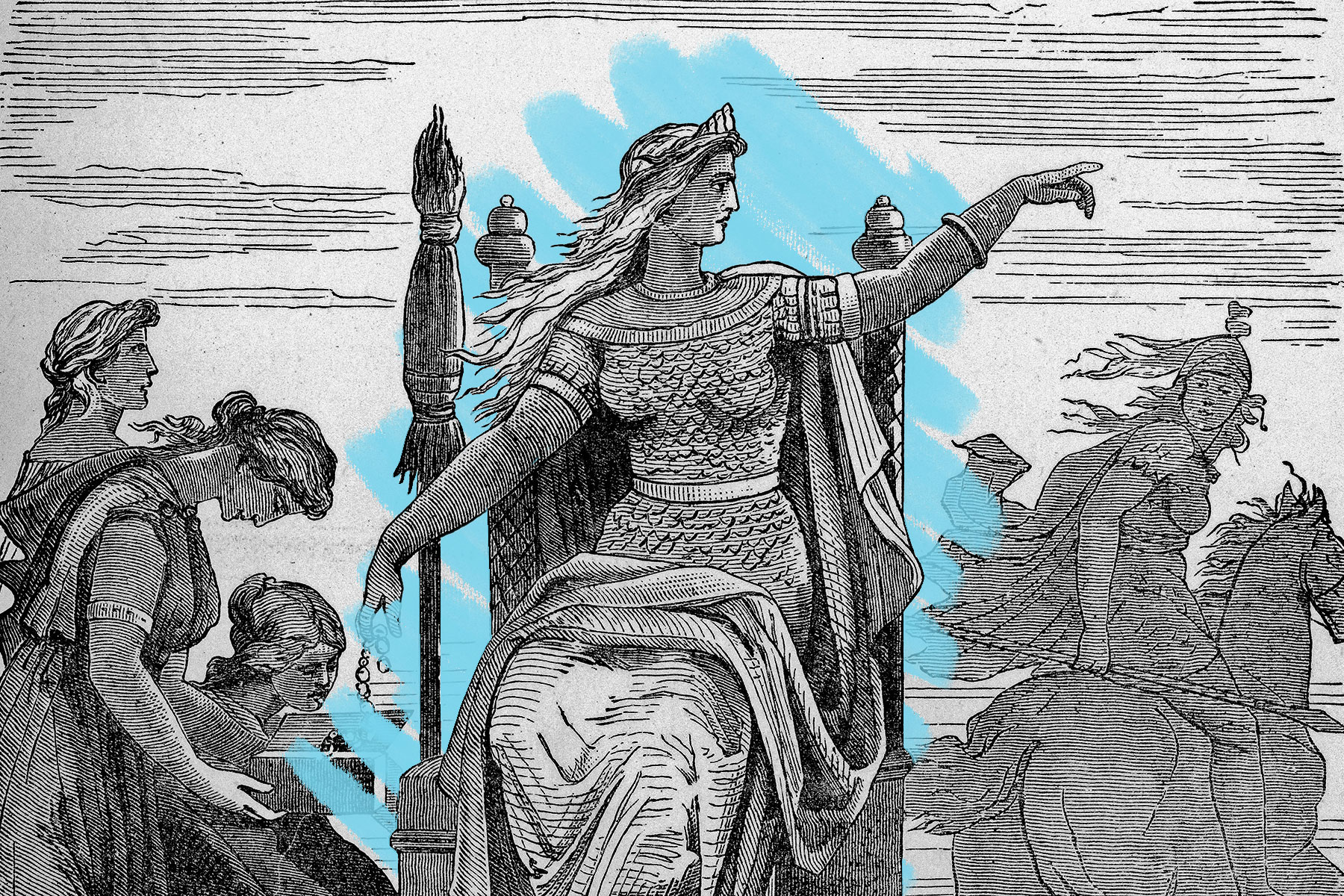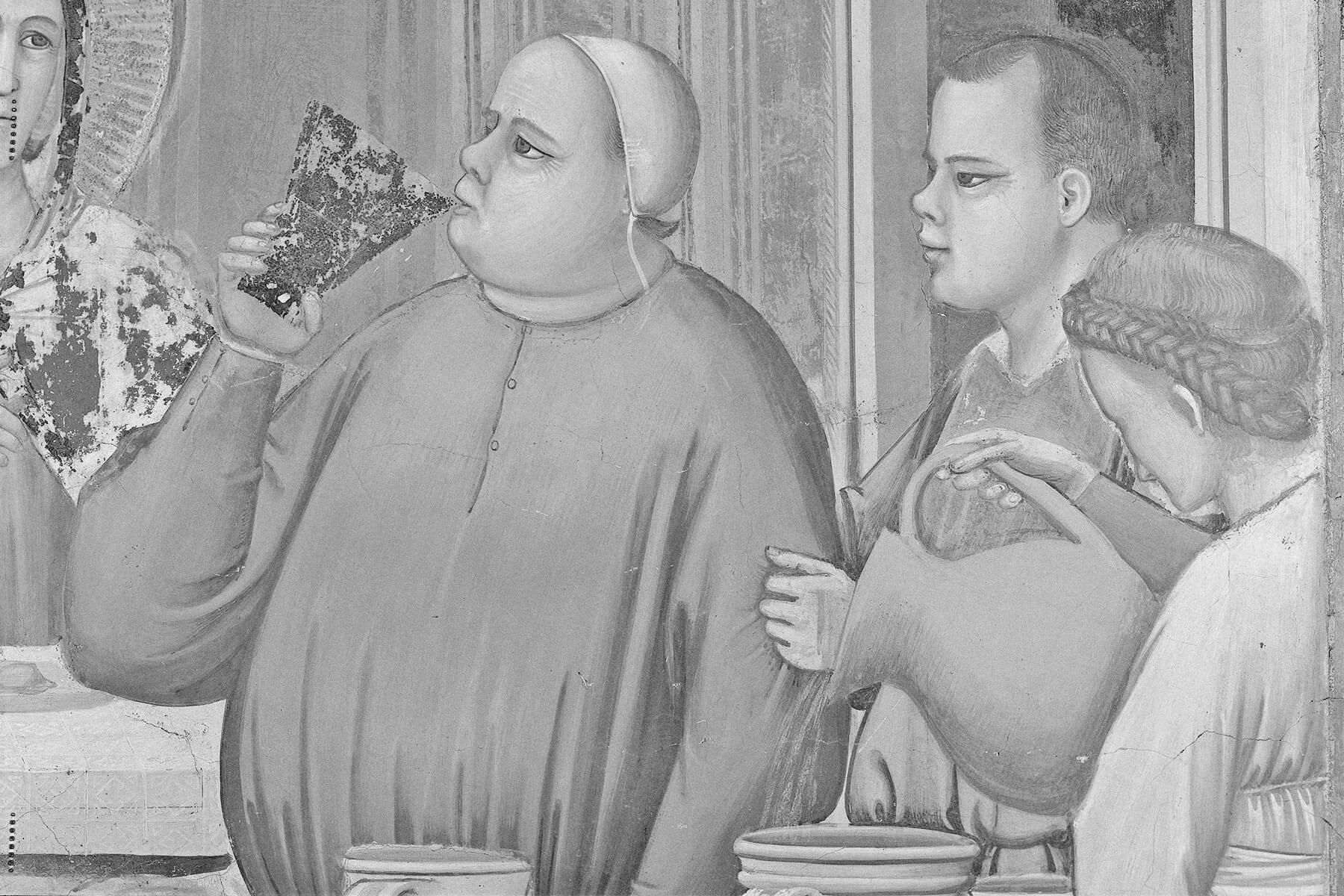Each week, whether we know it or not, we pay a small tribute to several gods from the ancient Norse pantheon. |
| |
| |
|
 |
|
| E ach week, whether we know it or not, we pay a small tribute to several gods from the ancient Norse pantheon. In fact, four days of the week are named after deities from Norse mythology. Tuesday comes from Tyr, the Norse god of war, while Wednesday is named after Odin , a powerful deity who was the father of many other Norse gods and ruled over Valhalla, the hall of slain warriors (the name is derived from the Anglo-Saxon word "Wodnesdaeg," meaning "Woden's day"). Thursday's namesake is Thor, the Norse god of Thunder, and Friday is named for Frigg, the wife of Odin and the Norse goddess of marriage and fertility. |
|
|
| The presence of Norse mythology in our days of the week is due to the historical connection between the English and Old Norse languages. In the eighth century CE, the British Isles were invaded by Viking tribes from Denmark, Norway, and Sweden, all of whom spoke Old Norse. As a result, many words in the English language are descended from Old Norse. The Vikings adopted the Roman custom of naming the days of the week after gods, but replaced the Latin deities with gods from their own mythology. The Old Norse names of Tyr, Odin, Thor, and Frigg evolved over time to become the weekdays we use in modern English today. |
|
 |  |
|
|
 |
|
| |
|
| Legs on Sleipnir, Odin's horse | | | 8 |
| | | Days in a week in the French Republican calendar, adopted during the French Revolution | | | 10 |
| | | Days in a week in the French Republican calendar, adopted during the French Revolution | | | 10 |
|
|
|
| Runes in the ancient Nordic alphabet, Elder Futhark | | | 24 |
| | | Day of the week named after a Roman deity (Saturday) | | | 1 |
| | | Day of the week named after a Roman deity (Saturday) | | | 1 |
|
|
|
 |
|
 | | Did you know? |
|
|
Two months of the year are named after Roman rulers. |
|
| Norse gods aren't the only ancient figures whose names appear on modern English calendars: Two months of the year, July and August, are named after former rulers of ancient Rome. July was named in honor of Julius Caesar, the famed general and statesman who ruled Rome as dictator from 46 BCE to 44 BCE. The original name for this month was "Quintilis," which is Latin for "fifth," since that was its original place in the Roman calendar. But because Quintilis was Caesar's birth month, the Romans renamed it in his honor upon his death in 44 BCE. August, meanwhile, is named after Augustus, Rome's first emperor, who led Rome from 31 BCE to 14 CE. It was originally called "Sextilis," Latin for "sixth," but Emperor Augustus renamed the month after himself in 8 BCE. The names of July and August still endure from the days of ancient Rome, a testament to the power and influence of these historic rulers. |
|


Lainnya dari

















0 comments:
Post a Comment